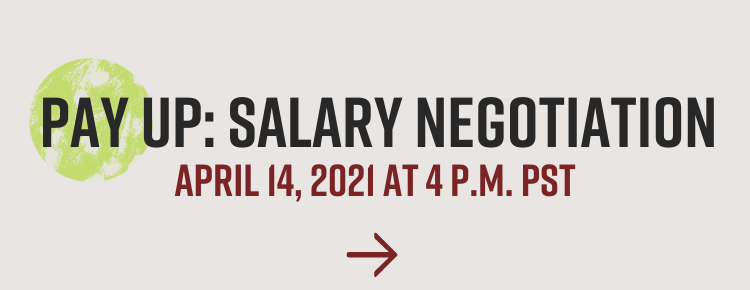
We were taught, at an early age, to be grateful for what we’re given. If you tried to convince the parents that your meager allowance was akin to theft, you may have been met with a bigger wage cut, more chores, or worse, a long lecture. This experience held a valuable lesson, but into adulthood, it can be a liability. When you’re provided your first job offer, we may feel inclined to accept the terms with no dispute, even if the salary is less than we hoped. Yet, employers aren’t your caretakers and won’t be bailing you out if you can’t make rent. So it’s important to get comfortable with the idea of salary negotiations.
To learn the tricks to navigating the wage discussion, I consulted with Lauren Wooster, University of Redlands Associate Director of the Office of Career & Professional Development for advice. She broke it down into 5 essential tips.
Google That Salary
You may be hoping for $100,000 a year, but if the median salary for your job is $42,000, you can’t go into negotiations with this expectation. It’s critical to research your worth prior to the job interview. You’ll avoid asking for an unreasonable amount and losing all credibility. And at the other end of the table, you’ll be able to counter offer more effectively if the offering salary is far below the median pay. Try Glassdoor.com or our own Career Pathways tool to begin determining where you should set your expectations*.
*Remember, just because you learn the median pay for a job is $42,000, doesn’t mean this is what you should ask for. Your education, experience level, and job location are all factors in determining a reasonable rate.
Back Your Ask Up
Now that you’ve researched your personal worth, be ready to defend it with concrete examples. What additional skills do you offer? Are you bilingual? Do you have a special certification? Employers are open to hearing your counteroffer, yet, you need to explain why you’re worth the extra pay. Any example you provide should reveal how you’ll either save the company money, solve a problem, or make their work easier. “You may consider how much your rent has increased and want to negotiate that cost of living increase. However, matters such as rent affect everyone–each person has their own cost of living based on circumstances and choices . . .those facts won’t get you a raise”, explains Lauren Wooster. It’s always smart to avoid personal appeals and keep to the job.
Give Your Number After Theirs
When possible, avoid being the first person to offer a number. Employers will likely try to get you to disclose your salary expectations before they disclose what they’ll pay. This is because they hope you’ll give a lower number than they’re willing to pay. Crumby? Maybe. But it’s a classic negotiation tactic. Reply that you’d love to discuss the salary and benefits. Then ask what the range is for this position. In California, employers are required by law to disclose when asked. With this information, you won’t lowball yourself.
There’s Always More Than Money
An employer may say they can’t meet your ask or counter with a number that’s below what you’re comfortable with. You may ask if they could negotiate alternative perks. This may be more vacation time, the ability to work from home, early access to healthcare, or even a bus pass.
Practice Outside
Salary negotiations can be very uncomfortable when you first begin. It can run counter to what you were taught––take what you’re given, don’t be greedy, etc. But this is business and you deserve to be paid your worth. Try negotiating with a friend before you go into the interview. And even try out negotiations in real life. Make a counteroffer with an online sale, such as Poshmark. And employ the same tactics. If it’s a blouse for sale, research the new price, explain why it should be less, and if they won’t take a lower price, ask if they’ll throw in that adorable hair clip for free as a counter. You may find negotiations can become fun.
The Takeaway
Many employers expect you to negotiate and you won’t be the first person who ever asked them for more money. So do your research, know your worth, and ask. If they can’t meet your needs or wants, it’s OK to decline the position.
About the Author | Thomas Guzowski is the Assistant Director of Marketing, Communications, and Events. They have over 10 years of marketing experience in the nonprofit sector where they worked in a variety of capacities. Outside of work, you’ll find them complaining about the price of rent.


